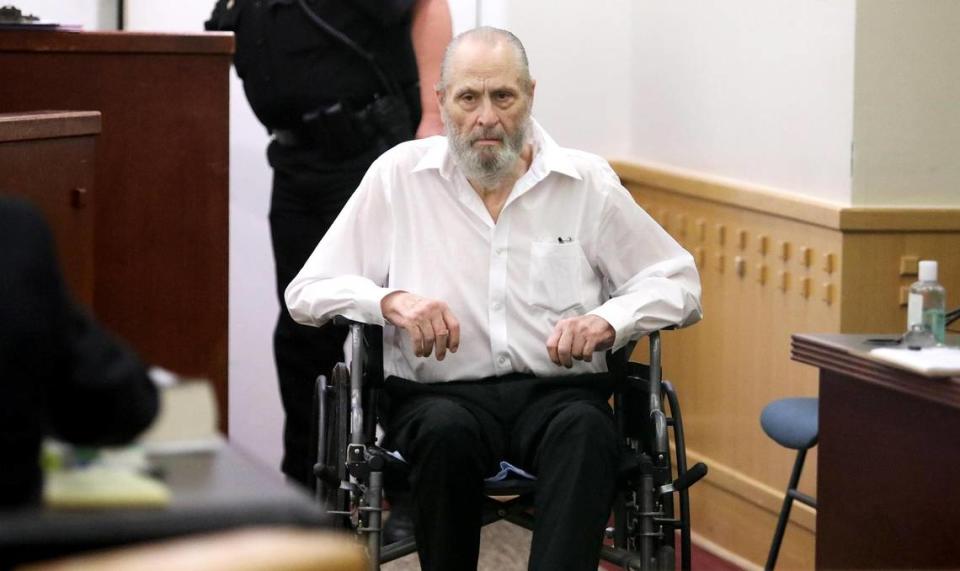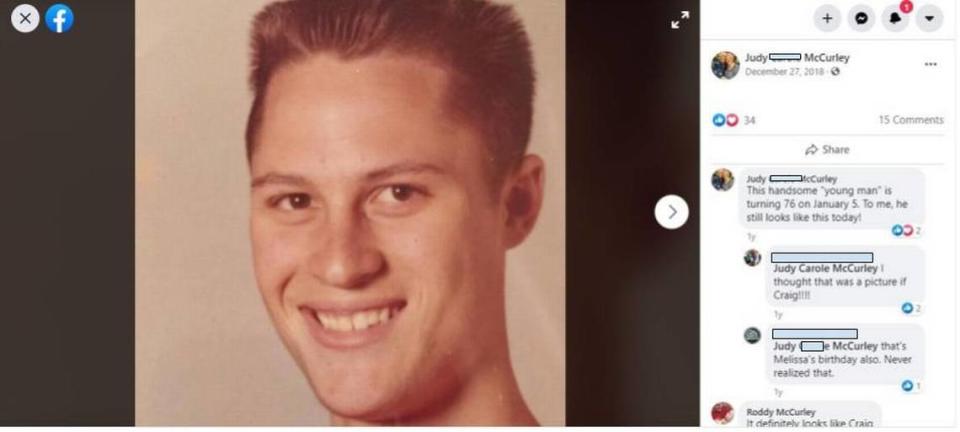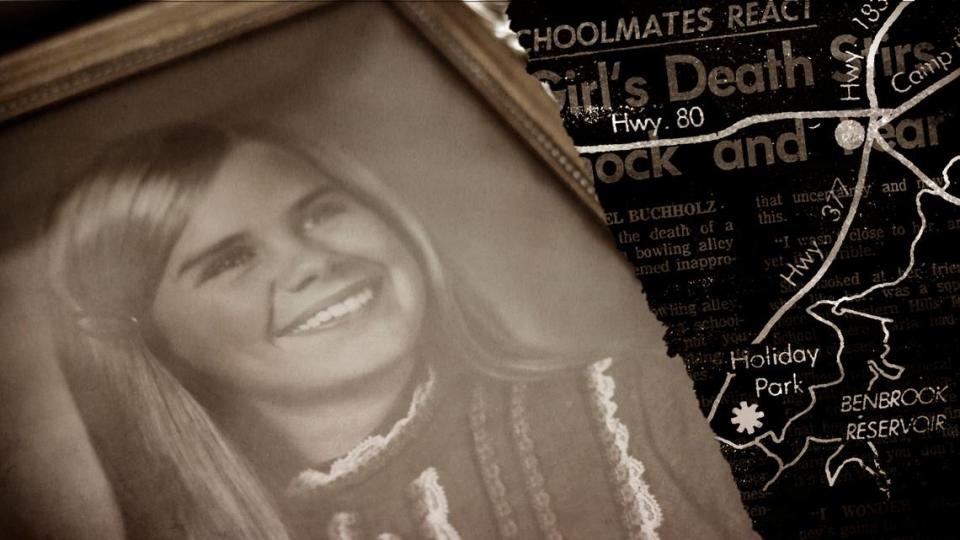Carla Walker’s family urges killer to confess to other crimes. Did he have other victims?
Carla Walker’s siblings were able to talk directly to their sister’s killer in court on Tuesday minutes after he pleaded guilty to murdering the 17-year-old in 1974.
One of the primary messages they had for Glen McCurley was this: If you have killed others, speak up now.
Jim Walker is certain McCurley, who has lived in Fort Worth since 1972, must have attacked other women.
“This is my theory, my opinion, I have no facts to support it,” Walker said, “But I believe he has, if not killed other women, I believe he has raped other women.”
Kim D’Avignon, an assistant Tarrant County criminal district attorney, was one of the prosecutors in McCurley’s case. After the trial, she told reporters she is also concerned about the possibility of other victims.
“There are boxes of cases of murders from the ‘70s that … if we could get the money to start testing those things, we might know if he did others, or if some of those cases were just related to each other,” D’Avignon said.
Criminology experts said multiple aspects of McCurley’s crime are indicators of a possible serial assaulter or killer.
McCurley, 78, has only been convicted of killing Carla. Fort Worth police did not respond to questions about whether he is a suspect in any other cases.

Rusty Arnold, whose sister is one of three girls who went missing in Fort Worth in 1974, said he has reason to believe that Fort Worth police are comparing McCurley’s DNA to DNA found on a letter in his sister’s case — widely known as the Fort Worth Missing Trio. Arnold emphasized he does not believe McCurley is the person responsible for the disappearance of his sister, Rachel Trlica, and Lisa Renee Wilson and Julie Ann Moseley, who went missing while Christmas shopping in Fort Worth.
DNA found on Carla’s clothing linked McCurley to her murder and led to his arrest in September 2020.
One-time killing or serial attacker?
The manner in which McCurley killed Carla Walker indicates a possible pattern of a repeat rapist or killer, according to criminal experts.
“This is certainly a pattern of someone that has the characteristics of someone who could reoffend versus the typical murderer who does not,” said Kim Rossmo, director of the Center for Geospatial Intelligence and Investigation at Texas State University.
However, without a psychological evaluation on McCurley or other conclusive evidence, Rossmo pointed out, McCurley’s possible connection to other crimes is pure speculation.
The fact that McCurley was a stranger to Carla is one aspect of the crime that could indicate there were other victims, experts said.
McCurley, a 31-year-old man from Midland, and Carla, a 17-year-old cheerleader, did not know one another. McCurley was out drinking and driving around Fort Worth that night, he told Fort Worth police detectives, and he attacked Carla and her boyfriend as they sat in a parked car outside a bowling alley. He kidnapped her, raped her, beat her, strangled her and dumped her body in a culvert near Benbrook Lake.
The fact that McCurley seemed to choose Carla at random is not enough to determine whether he attacked others, said Dr. Bryanna Fox, an associate professor in the Department of Criminology at the University of South Florida. However, stranger-on-stranger crime is a possible indicator of a repeat killer or assaulter, she said. Most murderers know their victims, and the killing is a one-off situation.

“Other people are more intrinsically motivated to commit these crimes,” Fox, who is a former FBI special agent, said. “They are satisfying an urge to commit the crime; they commit the crime but the urge comes back.”
In this case, McCurley’s “urge” seems to have been at least partially motivated by sex or power, said Rossmo, who is the University Chair in Criminology at Texas State University. Rossmo explained criminals have a motive for what they do, and when a crime seems motivated by a recurring urge or need, it is likely the perpetrator did it more than once.
When a stranger-crime involves rape or sexual assault, Rossmo said, “you would certainly want to explore the possibility that the individual had done something else.”
The method in which McCurley killed Carla could be a clue about possible other victims. Strangulation is an unusual and difficult way to kill someone, Fox explained, and not usually done by a one-time killer.
“(Strangulation) almost exclusively happens between people who know each other,” she said. “We typically can’t get quite that angry at strangers. Strangers tend to pull a gun. With strangulation, that person has to be so mad or so committed... that person has to persist when the person is very aggressively trying to get themselves free.”
If someone chooses to strangle a stranger, that may indicate an intrinsic motivation or urge that will return, she said..
However, it is important to note that McCurley has not been definitively linked to other crimes, and there is a possibility Carla was his only victim.
“Even though he’s a really good fit doesn’t mean he’s the right guy,” Rossmo said. “We probably don’t want to think about this, but there is no shortage of bizarre weirdos out there.”
Other Fort Worth women strangled
Jim Walker urged anyone with information about a crime they believe to be connected to McCurley to reach out to Fort Worth police.
“Now that Carla is taken care of,” he said, “my goal is to turn to other Carla Walkers.”
Several unsolved killings in the 1970s and ‘80s have similarities to Carla’s murder. Two women were strangled in the ‘70s during the month of February, just as Carla was.
Becky Martin was a Tarrant County Junior College student and was abducted from the college on Feb. 7, 1973 — one year and 10 days exactly before Carla’s murder. Martin’s skeletal remains were found weeks later in a culvert in west Fort Worth, according to Fort Worth police cold case records.

In Feb. 18, 1977, the body of 25-year-old June Ward was found lying next to the curb in the 1000 block of West Fuller in south Fort Worth. She had been strangled. Her car was found at 4800 S. Freeway, according to Fort Worth cold case records, and police believe she had gone to look for help after she had car trouble near a parking lot. The case was reopened in 2011 but is still unsolved.
In her victim impact statement during McCurley’s sentencing, Cindy Stone, Carla’s sister, looked down at McCurley from the witness stand and told him the decades-long pain he caused her family.
“I just ask you, if you have done this to anybody else, confess,” she said. “Because you have nothing to lose. And you have no idea what you’re doing to other families and your family. And it needs to end now.”
Fort Worth has nearly 1,000 cold cases dating back to 1954.

